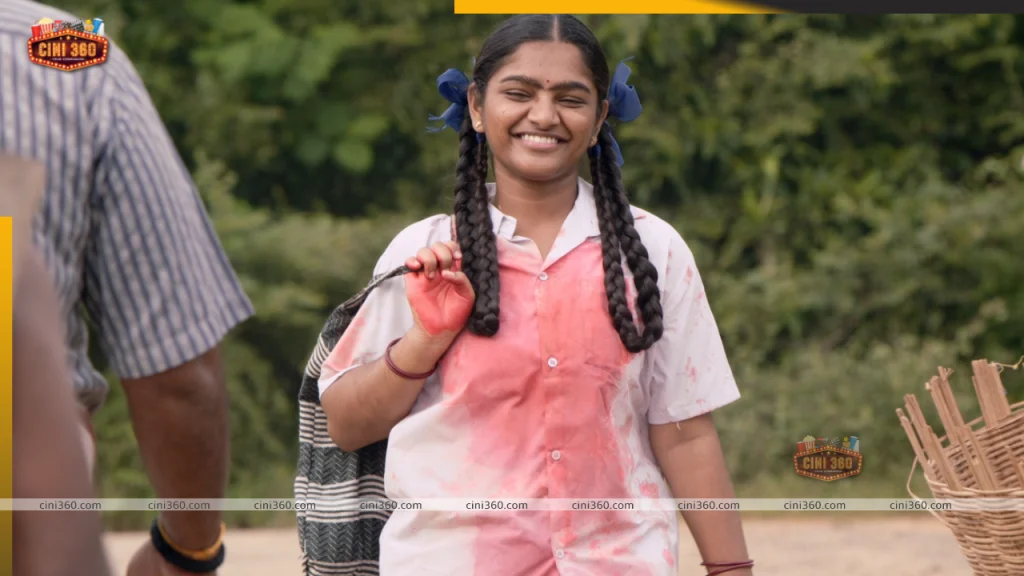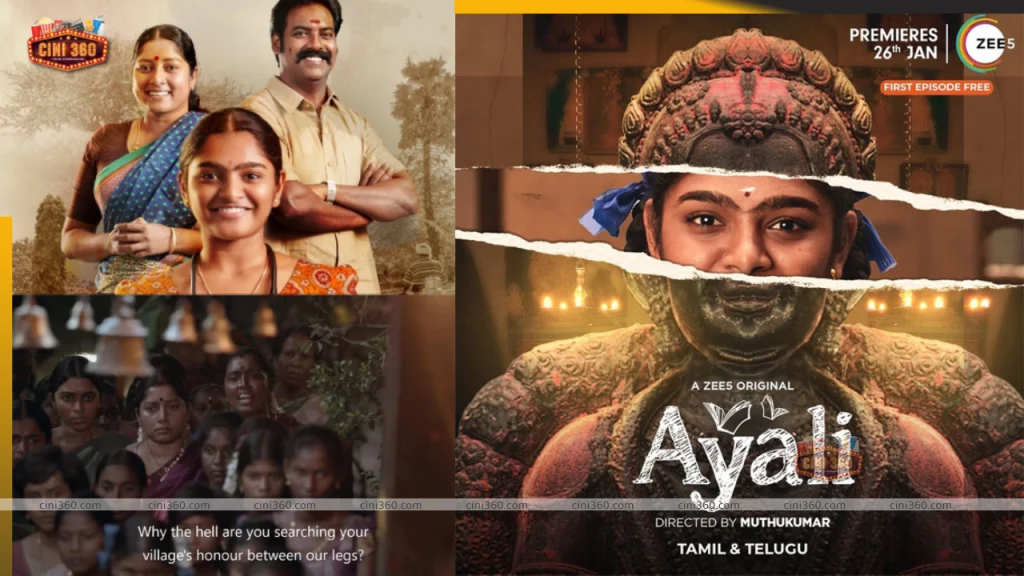‘Ayali’ series review: An emotional, compelling story that takes on the patriarchy
The most recent Tamil series on ZEE5 is “Ayali,” which speaks out against the socio-religious practises that males employ to oppress women. However, you wish the series had a longer runtime to fully realise its potential and had a stronger screenplay.
Ayali (Tamil)
Director: Muthu Kumar
Cast: Abi Nakshatra, Anumol, Singampuli, Lingaa
Episodes: 8
Runtime: 30 to 40 minutes each
Storyline: In 1990, a brave young women with big dreams and desires decides to break the oppressive rules set by the village folk for girls who come of age
Power and fear are two fundamental components of every belief system. And they eventually serve as the fuel for centuries-old customs, including regressive ones. This concept serves as the foundation for the narrative of the newest web series Ayali on ZEE5, which centres on the restriction of girls’ freedom and access to education in Veerappannai hamlet. In the first scene, a little girl is enjoying the wind on her face while wearing a half-saree, which is floating in the air by its pallu. Her mother gives her a hard smack and instructs her to walk with her eyes on the ground as she walks chin up, interrupting her happy moment. The cause? Girls should “act like girls,” then!
Director: Muthu Kumar
A graphic novel-style visual narrative that introduces the story of a young couple who left Veerappannai and brought on the wrath of the local god Ayali on the populace is used in the opening scene of Ayali. As a result, the villagers decide to arrange for all the girls to be married off as soon as they reach puberty. Years pass, and as a result of this retrograde decision, there are no more female pupils at the neighbourhood school beyond grade nine. Thamizh, a youthful protagonist who aspires to be a doctor, is now presented to us. To achieve her objective, Ayali keeps up this chase. She must, however, overcome all obstacles, beginning with disguising her menarche from the locals.
The extremes of sexism and misogyny are depicted in the series in some brutally honest ways. There are quips about how a woman’s body represents her family’s respect and how, once she reaches menstruation, she transforms into an asset of honour and a child-producing machine. The track between Thamizh and her mother (Anumol), who grows to be the girl’s closest confidant, is delightfully surprise and warmly inviting among these sombre messages. In exchange, the daughter serves as her mother’s portal to the outer world. In a moment, the daughter symbolically represents their relationship by allowing her mother to occupy the window bus seat.

Ayali frequently speaks inaudibly while seeing the curse placed on rural women. The males in the half-class laugh in one scenario when the teacher makes fun of a female who, according to superstitions, wouldn’t show up to class in the future, while the girl students stay silent and sombre. Even if this could only last for a split second, the series is making a significant statement. Ayali also contrasts the decline of patriarchal society with the protagonist Thamizh’s continual progress through the usage of its multi-character arc. Anumol and Abi Nakshatra stand out as the mother and daughter in Ayali’s cast, particularly.
After everything is said and done, Ayali’s storytelling is inconsistent. The enemies in Ayali are outrageous caricatures. To repeat the main point, they continue to use all the standard villain stereotypes. Only a detached feeling and a sour aftertaste result from this pattern of repetition. To share this story, to which any other woman may identify, a little tact would have helped.
The urge to wrap everything up neatly, save for the very last scene, makes the series suffer from the necessity to conclude on a high note. A pompous and clichéd marathon of lectures about genders emerges in the last section. Even while some conversation makes sense, it doesn’t reach home strongly enough.
Technically, Ayali is excellent, but it might have been more captivating with a bit more nuance and consistency in the language. At most of its critical turning points, the series falls victim to relying solely on language to advance the plot. Many important characters undergo drastic colour changes and stand out in the story like sore thumbs. The conclusion of Ayali is what makes it so lovely. We don’t really see Thamizh or what she has been up to in the epilogue. Instead, the viewpoint of one of the adversaries is used to depict how Veerappannai has evolved through time. This is a pleasing conclusion since it shows a conservative man giving in to the inevitable realities of a liberal environment.
Ayali is currently streaming on ZEE5




